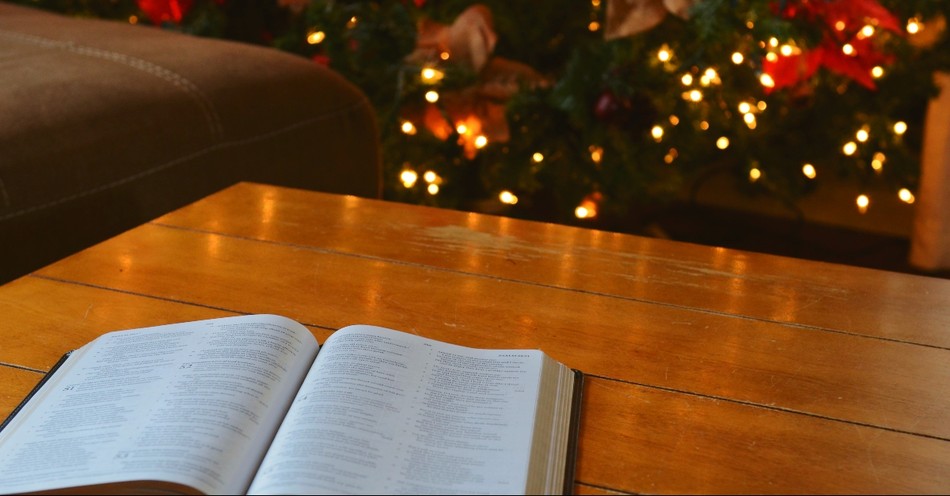It seems we cannot have a Christian holiday without it getting tangled in or with some pagan origins.
For instance, in the case of Christmas, the tree does have some pagan roots, although argued against in this Crosswalk article. Halloween and All Saints day seem to get mixed up with Samhain, a pagan tradition and holiday that falls around the same time.
And we probably shouldn’t even mention Easter and Valentine’s Day, both of which seem to have insidious roots in elements such as the Easter eggs and a rather gross Roman holiday associated with the latter holiday, known as Lupercalia.
How did we end up in this mess? It seems like even our most important holidays: Christmas and Easter, are not devoid of some pagan interlinking or origin.
In this article, we’ll explain how pagan and Christian holidays got intertwined, what and if the Bible has anything to say about it, and what this means for us today.
How Did Pagan and Christian Traditions Inter-Mix?
First, we should note that Christians did not steal all pagan holidays and turn them into Christian ones. In the case of the history of Halloween and All Saints Day, for instance, the timeline and who created who gets really dicey.
But we can also make a note that in the cases where pagan traditions seep in, that we can identify the origins of these and decide, on a case-by-case basis, if we will keep certain elements in our holiday celebrations.
However, we would be remiss to think that the church did not try to harmonize some pagan and Christian holidays that occurred during the same time of year.
Often, when trying to convert people from a pagan religion to Christianity, they noticed some pushback when it came to certain traditions and holidays, so they tried to compromise and give them the best of both worlds, in a sense.
But because historical sources are biased, because interpreters of those sources have their own leanings, and because it happened so many centuries ago with conflicting documentation, we can’t really decide how much Christians borrowed from pagan traditions. Nor can we determine their intentions for attempting a happy-medium between holiday celebrations.
In either case, pagan traditions still exist in Christian holidays. What does the Bible say about that?
What Are All the Pagan Holidays?
We likely cannot list all of the pagan holidays within the span of this article, due to word count restraints. However, we can highlight some that Christianity often coincides with our own holidays.
Lupercalia: This holiday coincides with the once-Christian holiday known as St. Valentine's Day. This holiday began in Ancient Rome on February 15 of each year. After sacrificing a goat and a dog, people would engage in a feast. This would often devolve into people running nearly naked in the streets. This may seem like a far-cry from Valentine's Day, until we realize this holiday celebrates fertility rites and romance, to some degree on the latter.
Saturnalia: Celebrated around the time of what we would call Christmas (winter solstice). This holiday ushers in the solar new year. This festival, which celebrated the Roman god Saturn, occurred at the tail end of December.
Samhain (Halloween): Also held around the time of All Saints' Day, this pagan tradition celebrates the Witches' New Year. Essentially it's Christmas for the pagans. The origins date far back into the time of the Celts and perhaps even prior to then.
We don't have enough room to list every pagan holiday. For a full listing, check out this Learn Religions article on pagan and Wiccan holidays celebrated to this day. It's apparent that many Christian and pagan holidays coincide in terms of dates, and we can assume this does not happen by accident. The Christian forms of the holidays often came afterward. Many times, the church would try to appeal to those from other traditions by creating alternative holidays, many of which had the same traditions as the predecessors.
So where do we go from here? And what does the Bible have to say about all of this? Should we throw out the baby with the bathwater?
What Does the Bible Say about Pagan Holidays?
It shouldn’t come as a surprise to us that the Bible has very little to say about the celebrations of Christmas or Valentine’s Day, as celebrations of these events happened quite a bit of time after the emergence of the early church.
After all, until Constantine showed up, the Christians didn’t really have much time for partying as they were being persecuted widely.
The Bible does list a number of Jewish observances such as the Feast of Booths (Leviticus 23) and Yom Kippur, still practiced to this day.
This is to be a lasting ordinance for you: On the tenth day of the seventh month you must deny yourselves and not do any work — whether native-born or a foreigner residing among you — because on this day atonement will be made for you, to cleanse you. Then, before the Lord, you will be clean from all your sins (Leviticus 16:29-30).
Nevertheless, we do see practicing Jews to this day celebrating non-canonical holidays such as Hanukkah.
However, Scripture does make it clear to not celebrate or immerse ourselves in the ways of the pagans. After all, when Antiochus Epiphanes IV set a statue of Zeus (a pagan item) in the Jewish temple, it was seen as an abomination.
So, where do we draw the line?
What Do Pagan Holiday Origins Mean to Us as Christians
When deciding which traditions to celebrate, first, we need to understand the origins of these traditions. What elements of the holidays have we derived from gross celebrations such as Lupercalia?
If we don’t understand where some traditions came from, we run the risk of participating in something we think runs contrary to our beliefs.
Secondly, because of our freedom under Christ, we do have the ability to choose. Some Christians chose to eat meat sacrificed to pagan idols, others did not,
But not everyone possesses this knowledge. Some people are still so accustomed to idols that when they eat sacrificial food they think of it as having been sacrificed to a god, and since their conscience is weak, it is defiled. But food does not bring us near to God; we are no worse if we do not eat, and no better if we do. (1 Corinthians 8:7-8).
What criteria do we use when we determine to keep a tradition or chuck it?
Because many traditions will fall under a gray area, it’s up to each Christian family to decide which traditions they will keep and which one they’ll pass on.
This is how we get some families who participate in Halloween, some who celebrate Reformation day, and some who choose to keep their lights off on October 31.
Finally, have grace on other Christians who choose to celebrate differently than you do.
You may have decided to ditch the Christmas tree for this year. Others may have chosen to keep it. No matter what the decision, because holidays fall under a gray area, have respect for your brother and sister and try to understand their viewpoints on the matter.
Photo Credit: ©Sparrow Stock
Hope Bolinger is an acquisitions editor at End Game Press, book editor for hire, and the author of almost 30 books. More than 1500 of her works have been featured in various publications. Check out her books at hopebolinger.com for clean books in most genres, great for adults and kids. Check out her editing profile at Reedsy.com to find out about hiring her for your next book project.
This article is part of our larger Christmas and Advent resource library centered around the events leading up to the birth of Jesus Christ. We hope these articles help you understand the meaning and story behind important Christian holidays and dates and encourage you as you take time to reflect on all that God has done for us through His Son, Jesus Christ!
What Is Advent: Meaning, History, and Traditions
Advent Prayers for Friends, Family, and More
What Is an Advent Wreath and How to Use One?
The History of Santa Claus: Origin of St. Nicholas
Christmas Bible Verses & Scripture Story
What is Christmas? True Meaning and Holiday History
Christmas Eve History and Traditions
Why Gold, Frankincense, and Myrrh?
When Was Jesus Born? Why December 25th
Where Was Jesus Born?




